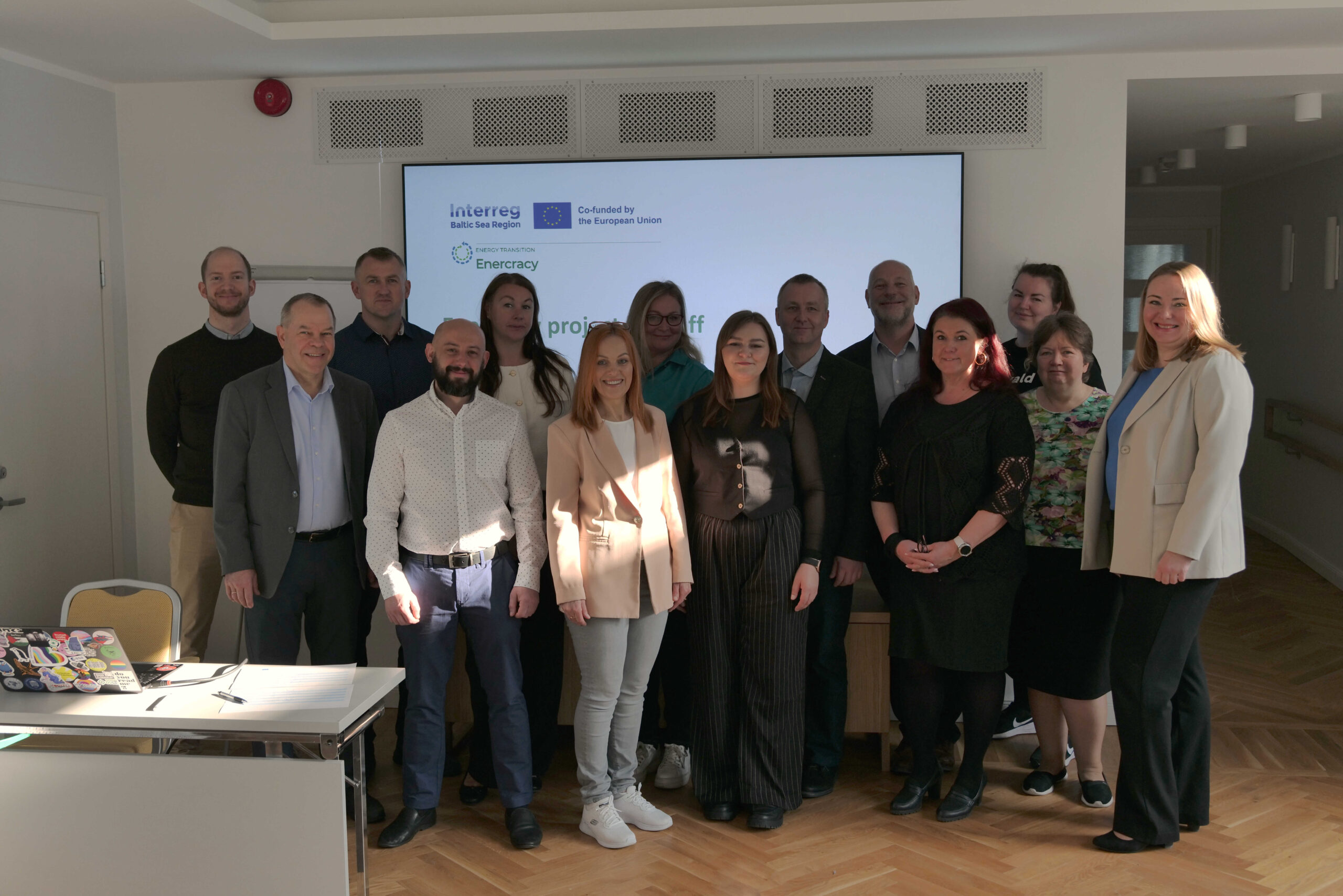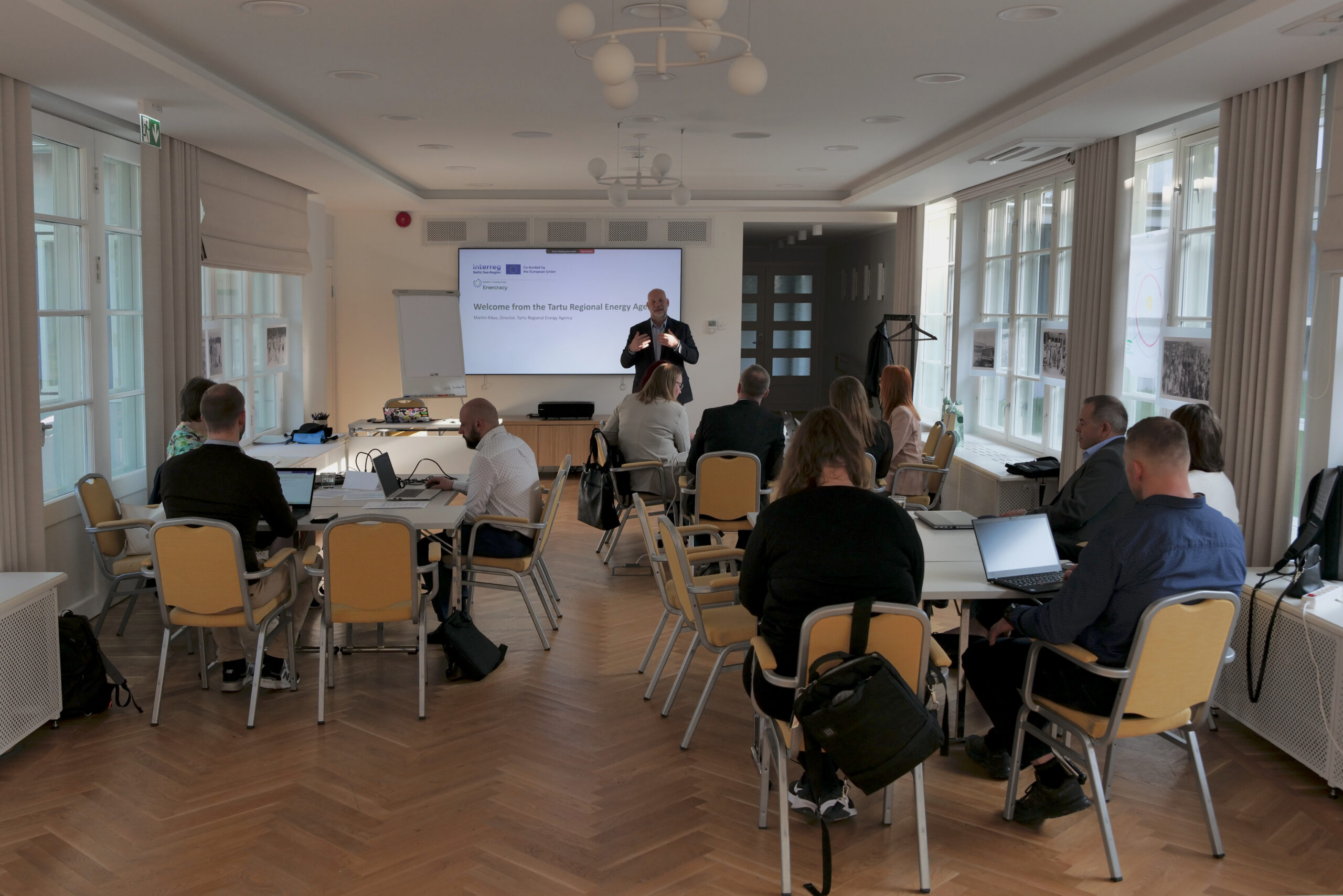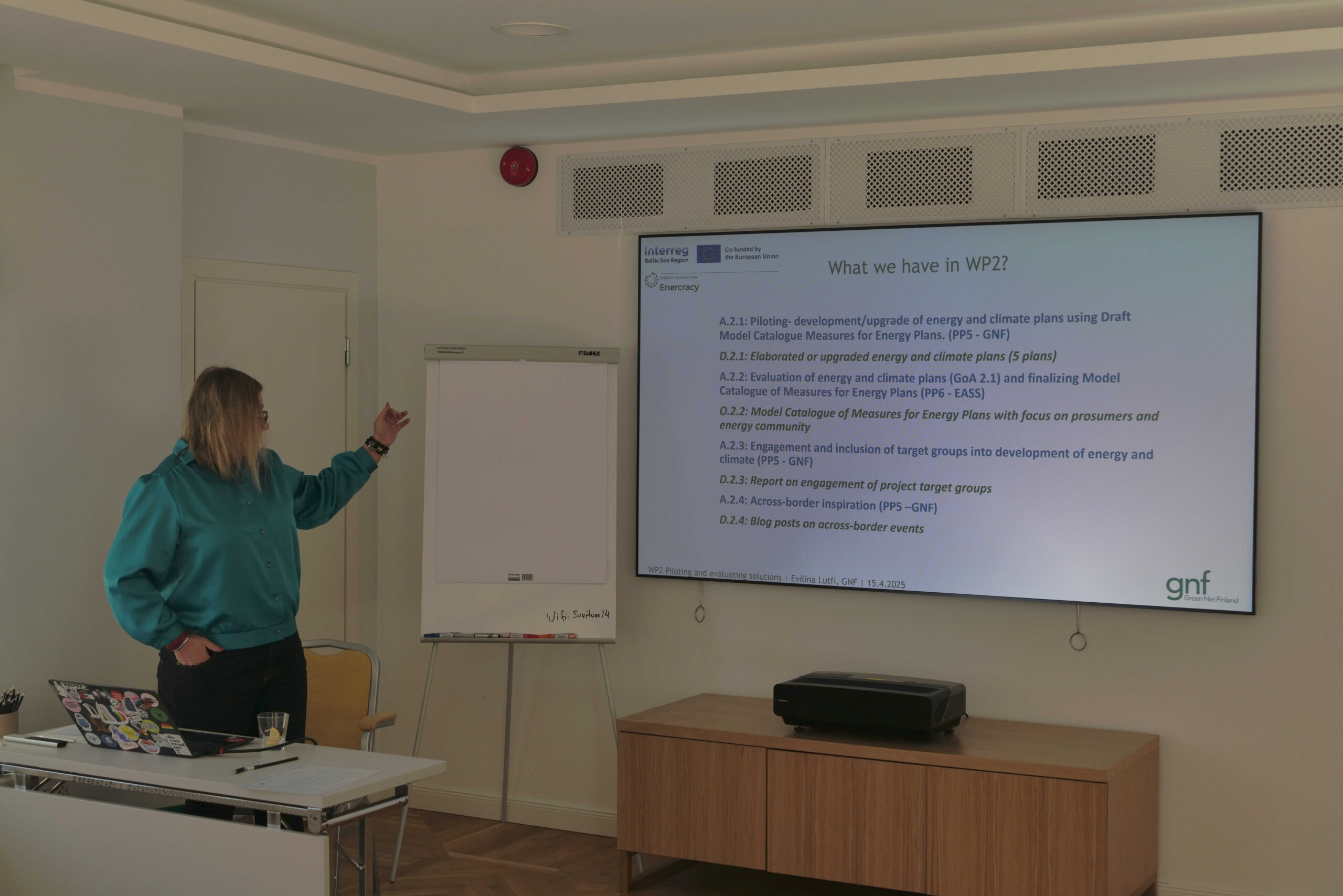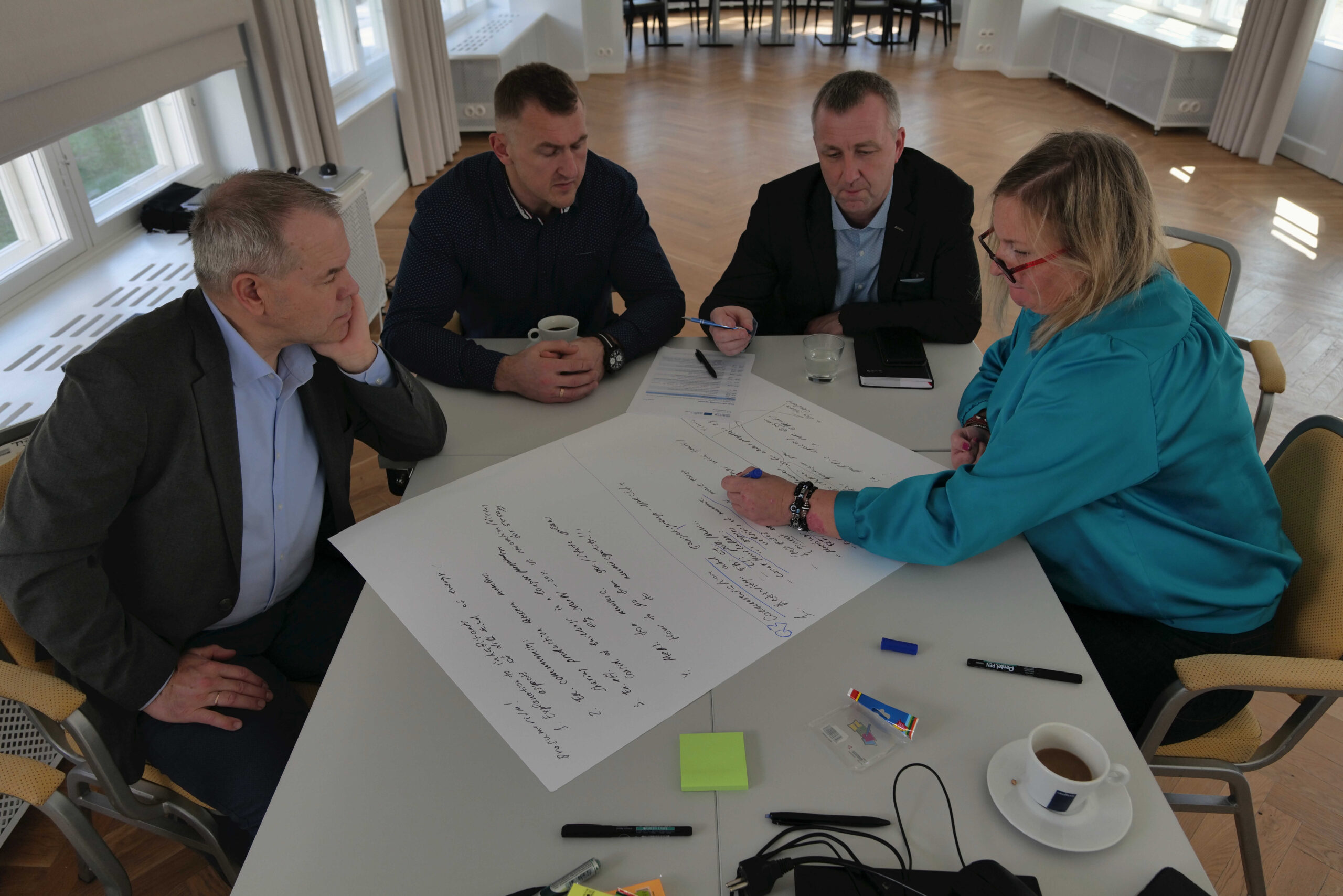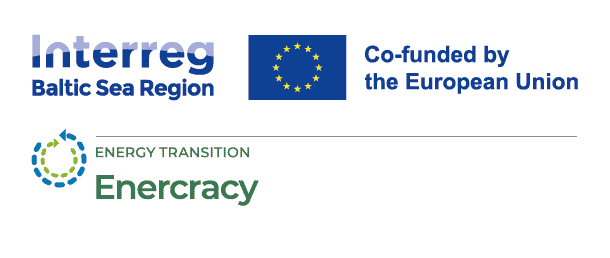
Enercracy Project Successfully Kicks Off in Pärnu, Estonia
22 April 2025
From April 15-16, 2025, representatives from the eight organizations forming the Enercracy project consortium convened in Pärnu, Estonia, for a successful kick-off meeting. The event was also attended by representatives from the Monitoring Committee of Interreg BSR and the Joint Secretariat, who joined to familiarise themselves with the consortium and provide valuable insights on successful project reporting.
The meeting commenced with welcoming remarks from Martin Kikas, Director of the Tartu Regional Energy Agency. He emphasised the critical role of cross-country collaboration and the importance of enabling the democratisation of energy systems. Following this, Margarita Golovko, a representative of the Monitoring Committee of Interreg BSR in Estonia, delivered her welcome speech, expressing pleasure that the lead project partner is based in Estonia.
Following the welcoming addresses, the kick-off quickly transitioned to in-depth discussions on project reporting. Marina Kislyak and Lukasz Korpal from the Joint Secretariat led sessions that reinforced the consortium’s understanding of key aspects of both activity and financial reporting. The administrative segment of the Enercracy project discussions concluded with the alignment of internal procedures to ensure seamless collaboration among partners.
Subsequent sessions of the kick-off meeting delved into the specifics of each work package (WP). Inga Kreicmane, Director of the Zemgale Regional Energy Agency and WP1 Leader, initiated the discussion on activities related to developing a model catalogue of measures for energy and climate plans. This catalogue aims to facilitate prosumerism, energy communities, and renewable energy developments at the local level. During this session, the consortium highlighted the importance of creating clear benefit structures for various stakeholder groups and brainstormed an initial list of potential measures.
Following this, Evilina Lufti, Project Manager at Green Net Finland, presented the activities for WP2. The discussion focused on the upcoming development and updates of energy and climate plans for five municipalities, guided by the foreseen model catalogue. The project consortium learned about the specific municipalities where the model catalogue would be piloted and expressed their impression regarding the significant total population of these five municipalities, approximately 352,000 residents, who stand to be impacted by the Enercracy activities.
The final session concentrated on WP3 activities, led by Jakub Karp, Main Project Implementation Specialist from the Rzeszów Regional Development Agency. This session focused on shaping the dissemination plan and identifying pathways for improved stakeholder interactions to ensure the successful dissemination of project outputs. The consortium discussed initial partner inputs on existing dissemination and communication activities and acknowledged the need to expand beyond existing networks and to identify new opportunities for engaging with different stakeholder groups. The kick-off meeting concluded with small group workshops dedicated to further discussing key questions related to each WP.
On the second day, the project consortium undertook its first study visit to the Tori municipality to learn about their local energy transition facilitation efforts. However, the valuable insights gained from this initial study visit will be the subject of a forthcoming article.






